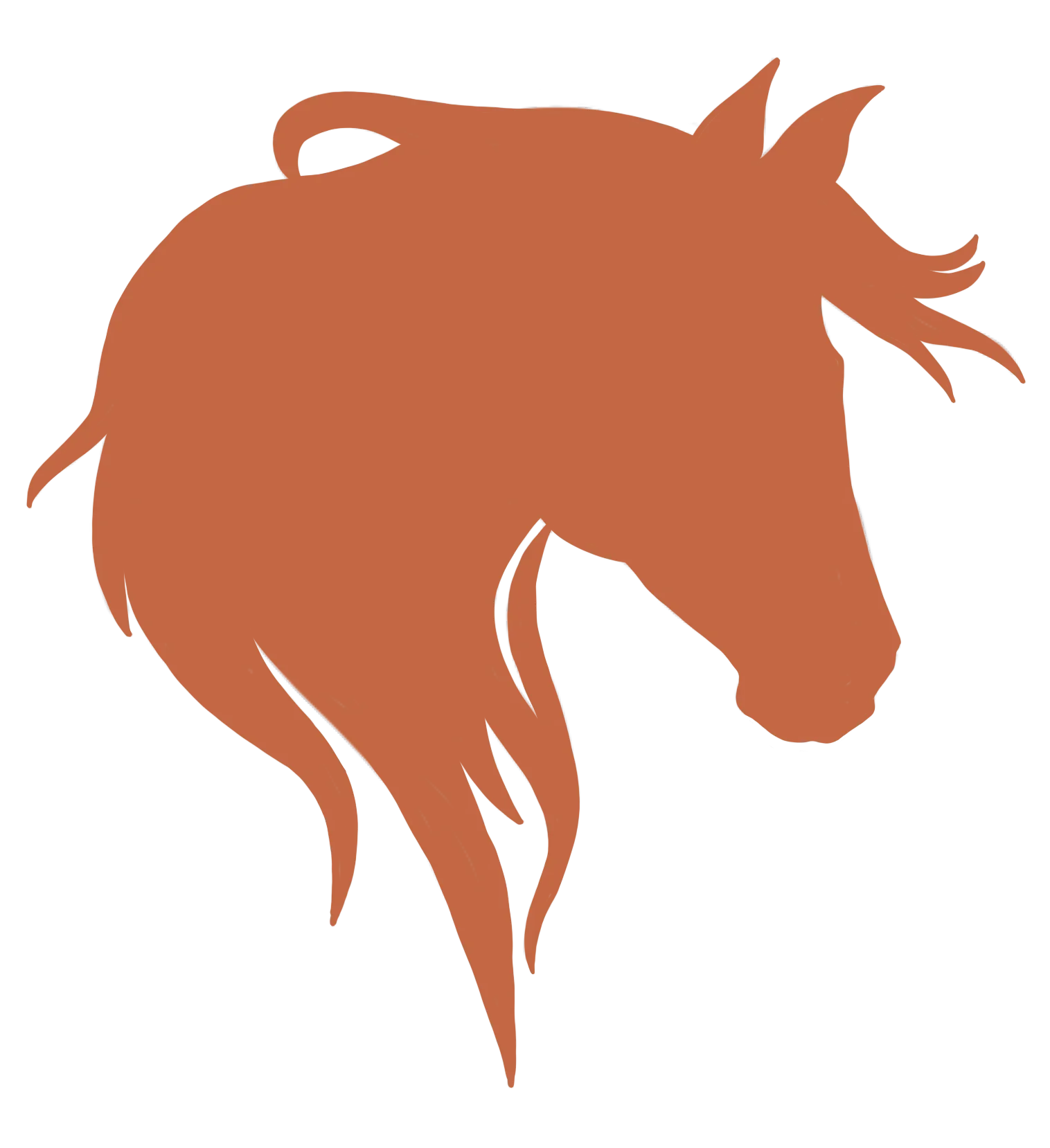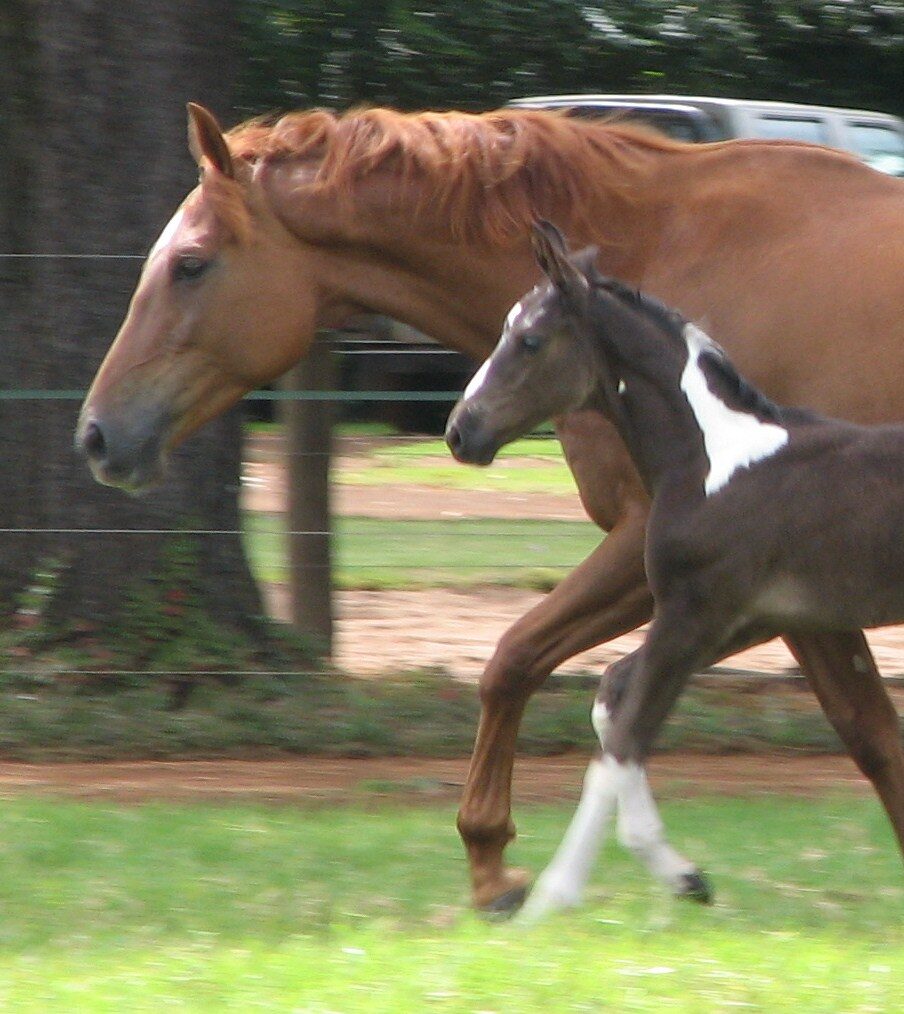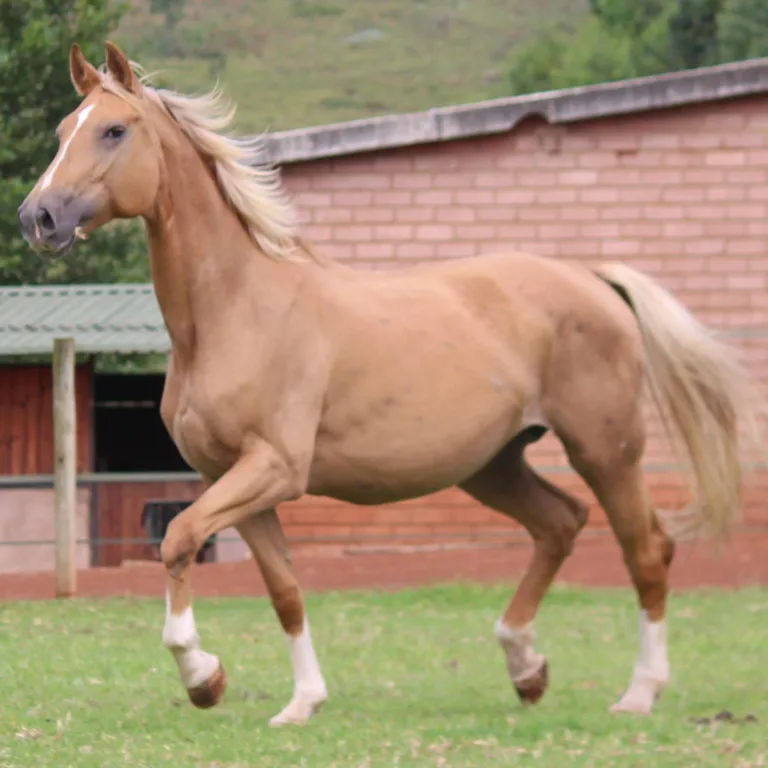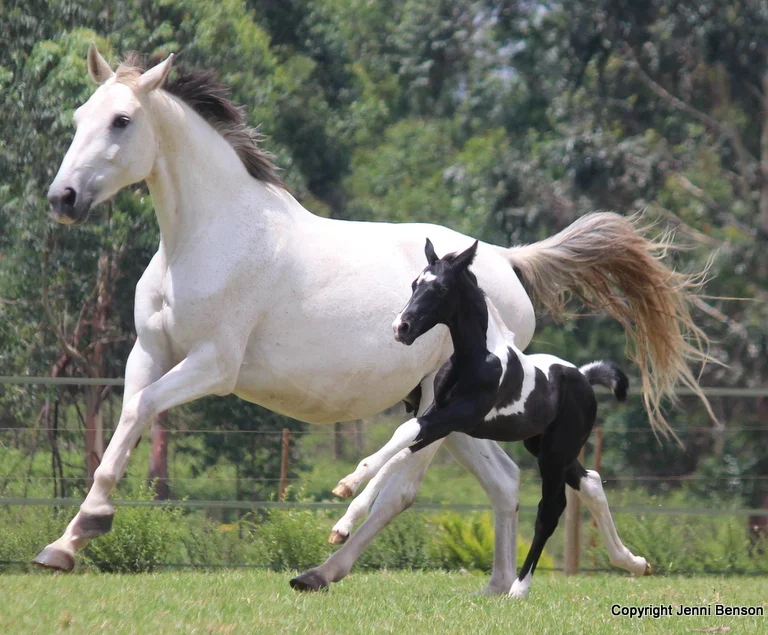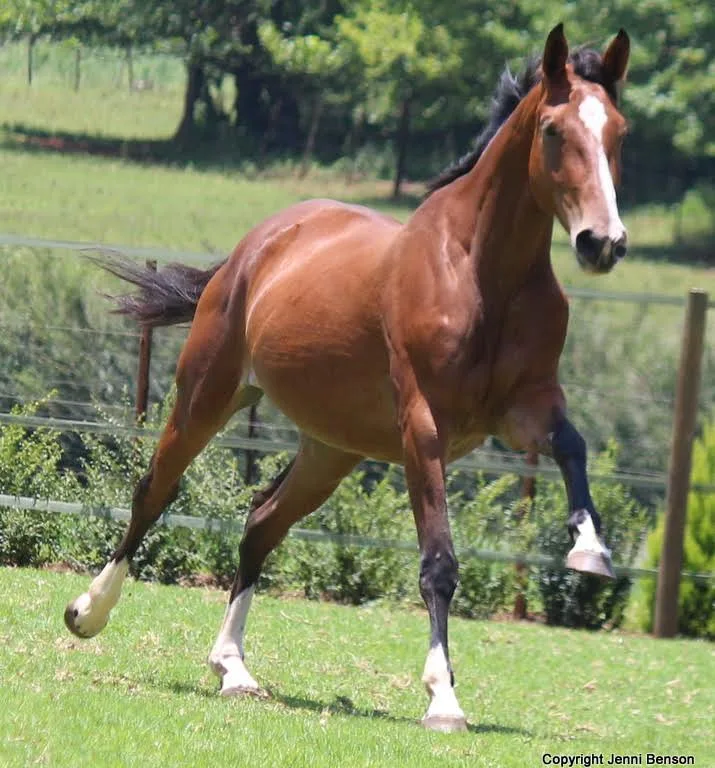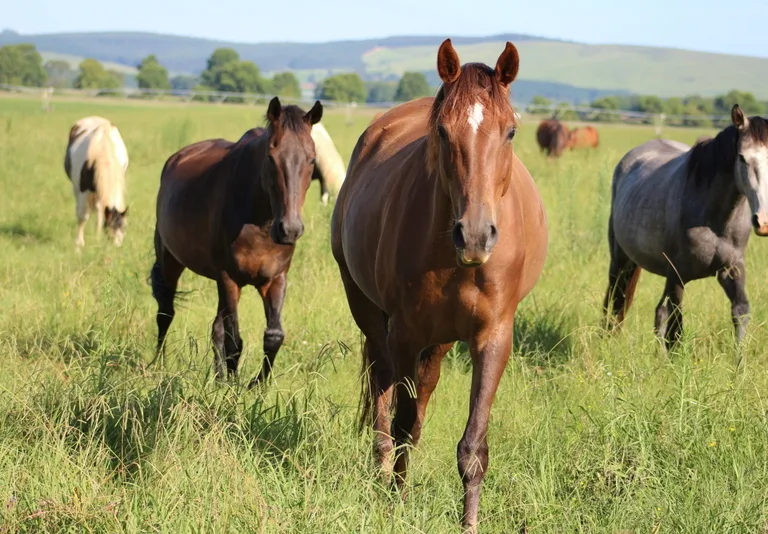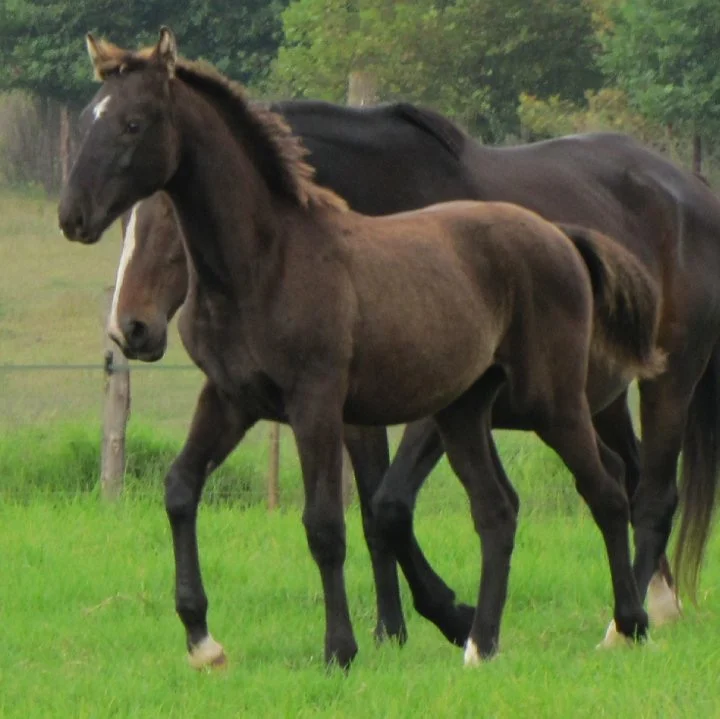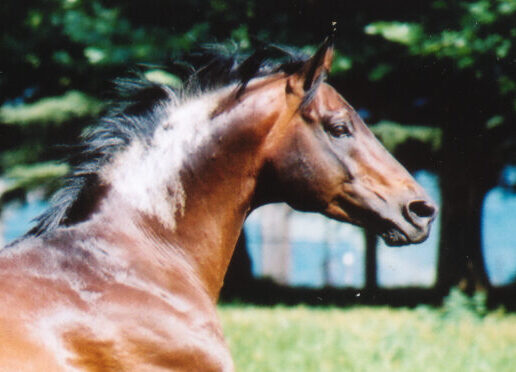The Right Fit: How to Choose the Ideal Mare for Breeding Your Dream Foal
The journey to breeding your dream foal is a path paved with knowledge, intuition, and a deep respect for the equine species. For those of us who have devoted our lives to these magnificent creatures, the decision to breed is not just a choice, but a calling. Having been around horses for over 40 years, riding, breeding, and cherishing them, I’ve gained insights that only come with time and experience.
When the opportunity to breed a foal first presented itself, I was fortunate to be surrounded by wisdom. Experienced horse breeders, seasoned by years of practice and understanding, offered me invaluable advice. The lesson that resonated most deeply was simple yet profound: match type to type. Choose a mare that captures your heart and a stallion that speaks to your soul, and breed them. This philosophy is rooted in the belief that you should not expect a mare to change drastically in a stallion, and vice versa. The magic lies in the harmony of their qualities.
Breeding a good mare with a good stallion, I learned, almost always leads to a good foal. The attempt to mix drastically different types – such as a small mare with a large stallion – can lead to unpredictable outcomes, a veritable plethora of results that may not align with your breeding goals. Similarly, expecting a stallion to correct all the flaws of a mare is a gamble that rarely pays off. By adhering to the principle of ‘type to type’, you set a foundation for breeding not just good horses, but great ones.
This lesson has stayed with me, guiding my breeding decisions and shaping my approach to horse breeding. It’s a testament to the wisdom that comes from experience and a reminder that in the world of horse breeding, sometimes the simplest truths are the most powerful. As we delve deeper into how to choose the ideal mare for breeding your dream foal, remember that it’s a blend of science, art, and, most importantly, a love for horses that guides our choices.
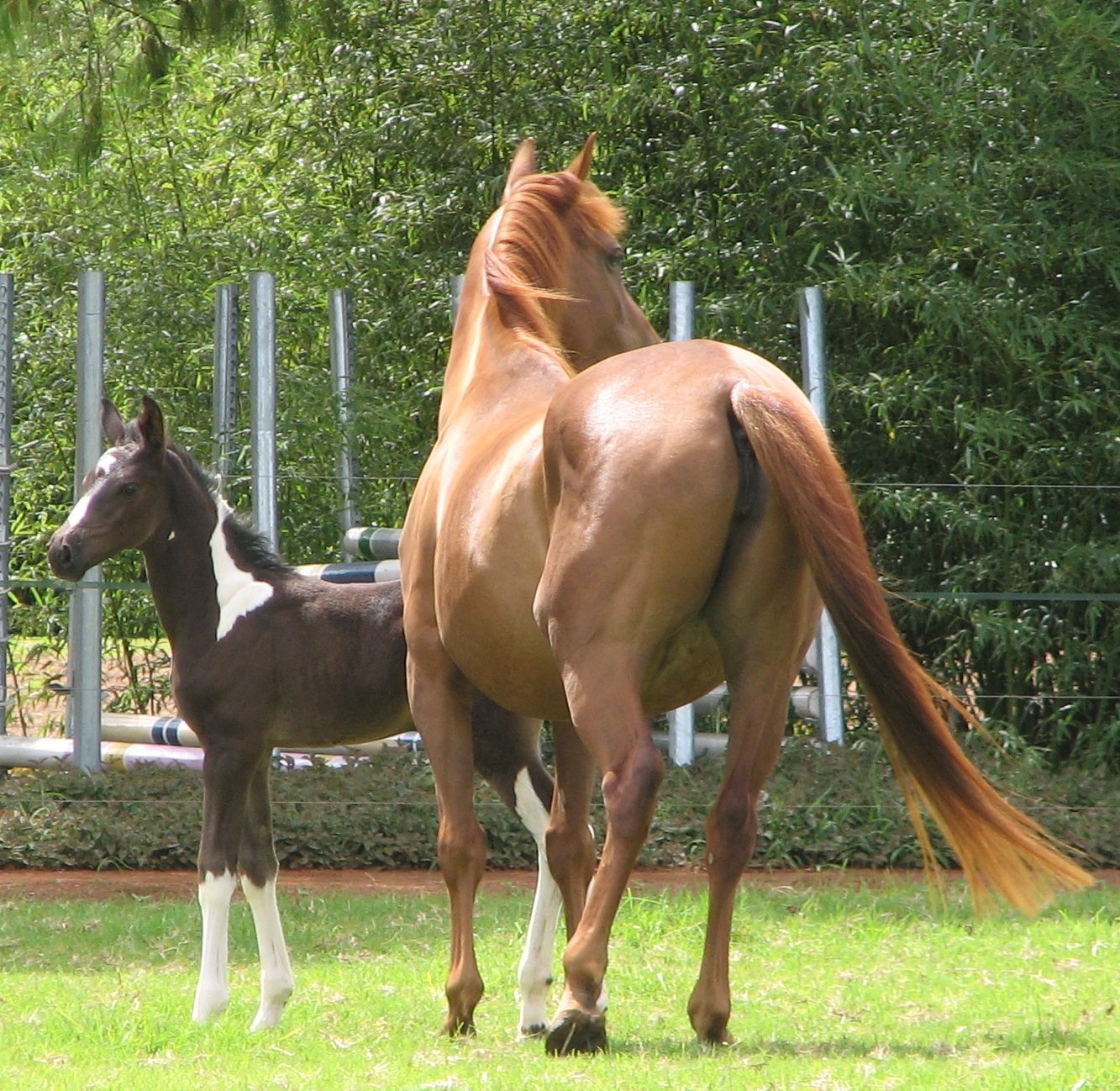
Understanding Genetics and Pedigree
In the world of horse breeding, genetics is not just a science; it’s the blueprint that shapes the future of our equine companions. Understanding genetics is crucial when choosing a mare for breeding, as it directly influences the traits and potential of the foal.
The Role of Genetics in Breeding
Genetics play a pivotal role in determining a myriad of characteristics in horses, from physical attributes like color, size, and conformation, to temperamental traits and athletic abilities. When selecting a mare, it’s essential to consider her genetic makeup, as it will combine with that of the chosen stallion to create the foal. This genetic mix not only passes on physical and behavioral traits but also predisposes the foal to certain health conditions.
Every horse carries two sets of genes – one from the sire and one from the dam. These genes interact in various ways, some being dominant while others are recessive. Understanding these interactions helps in predicting the likelihood of certain traits appearing in the foal. For instance, if both mare and stallion carry genes for a specific desirable trait, such as a strong back or exceptional endurance, the chances of their foal inheriting this trait increase.
The Importance of Studying the Mare’s Pedigree
A mare’s pedigree is more than a family tree; it’s a window into her genetic legacy. Studying the pedigree provides insights into the traits and qualities that have been passed down through generations. It helps in identifying patterns, such as longevity in the lineage, recurring health issues, or consistent performance abilities.
Analyzing the mare’s pedigree involves examining not just her direct lineage but also the performance and characteristics of her relatives. This includes her siblings, offspring (if any), and more distant relatives. Such an analysis can reveal the strengths and weaknesses within the lineage, guiding breeders in making informed decisions. For example, if a mare comes from a line known for strong, agile foals, she may be a good match with a stallion that complements these traits.
Furthermore, a thorough understanding of pedigree can help avoid inbreeding, which can amplify both desirable and undesirable genetic traits. It also aids in maintaining genetic diversity, a key factor in the health and vitality of the breed as a whole.
In conclusion, genetics and pedigree are foundational elements in the art and science of breeding horses. By understanding the genetic principles and carefully studying the mare’s pedigree, breeders can make informed decisions that enhance the chances of producing a healthy, well-rounded, and talented foal – the very embodiment of their breeding aspirations.
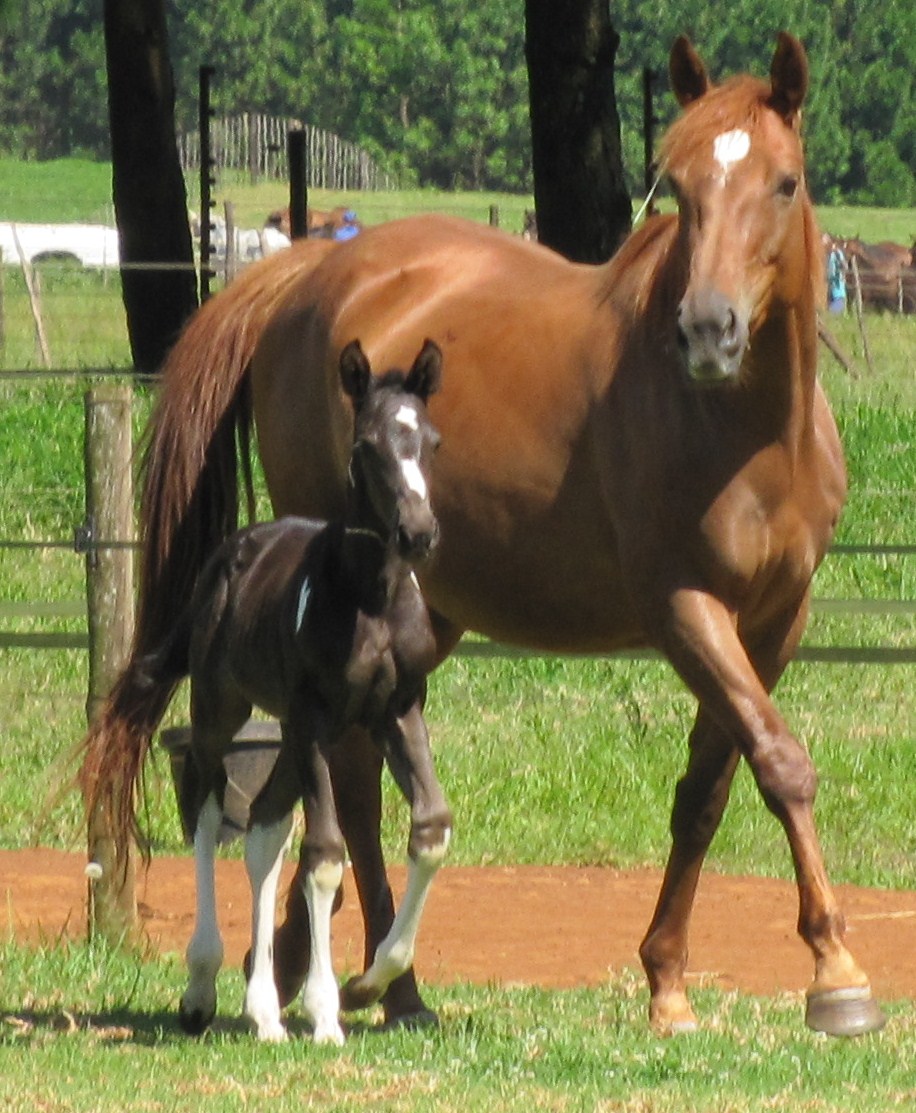
Evaluating Physical Attributes
Choosing the right mare for breeding extends beyond genetics and pedigree to her physical attributes. The conformation, health, and overall condition of a mare are critical factors that influence not only her ability to carry and nurture a foal but also the potential qualities of the offspring.
Key Physical Characteristics to Consider
- Conformation: The mare’s conformation, or her body structure and proportions, is paramount. Look for a well-balanced body, a strong and straight back, well-angled shoulders, and sturdy legs. Good conformation is not just about aesthetics; it’s about functionality. A mare with correct conformation is more likely to produce a foal that will be sound, athletic, and capable.
- Health and Fitness: A healthy mare is fundamental for a successful breeding process. She should be free from diseases and genetic conditions that could be passed on to the foal. Regular veterinary check-ups, including reproductive assessments, are essential. Fitness also plays a role; a mare in good physical condition is better prepared for pregnancy and can better support the growth of a healthy foal.
- Size and Type: The size and type of the mare should complement the stallion. While size differences can be accommodated to some extent, extreme differences can lead to complications. The mare’s type – whether she’s a stock type, sport type, or another – should align with the breeding goal, ensuring the foal is well-suited for its intended discipline or use.
Impact of Physical Attributes on the Foal
The physical characteristics of the mare heavily influence the resulting foal. While genetics play their part, the mare’s physicality provides the immediate environment for the foal’s development. For instance, a mare with strong, healthy bones and good musculature sets the stage for a foal that can inherit these traits. Similarly, a mare with a well-proportioned body can pass on the traits of good conformation.
It’s also worth noting that the mare’s physical health during pregnancy directly impacts the foal’s development. Nutritional status, fitness level, and health care received during gestation can all have lasting effects on the foal’s health and constitution.
In conclusion, evaluating a mare’s physical attributes is a critical step in breeding. It requires a keen eye for detail, an understanding of equine conformation and health, and a vision of what those attributes could potentially create in a new life. By selecting a mare with desirable physical traits, you lay a strong foundation for breeding a foal that not only meets but perhaps even exceeds your dreams.
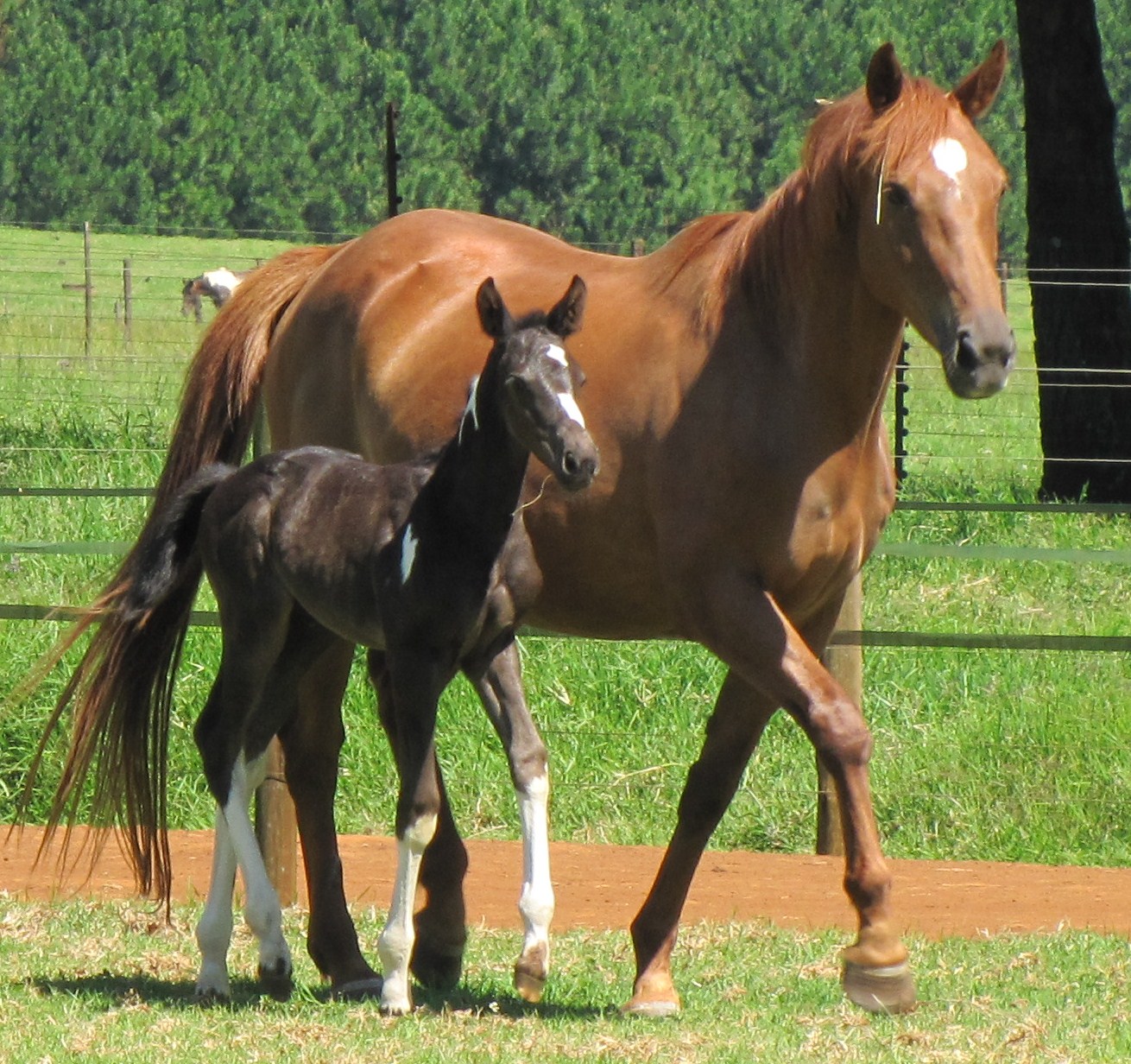
Assessing Temperament and Behavior
The temperament and behavior of a mare are as crucial as her physical attributes and genetic pedigree in the breeding process. The demeanor of the mare not only affects her interactions with handlers and other horses but also significantly influences the temperament of her foal.
The Importance of the Mare’s Temperament
- Influence on the Foal: The mare is the foal’s first teacher. Her temperament sets the tone for the early learning experiences of the foal. A calm, gentle mare often raises a foal that is easy to handle and train. Conversely, a mare that is nervous or skittish can pass these traits on to her offspring, either genetically or through learned behavior.
- Impact on Foal Development: The mare’s behavior can impact the development of the foal both in utero and post-birth. Stress and anxiety in the mare can lead to developmental challenges for the foal. A relaxed and content mare, on the other hand, provides a nurturing environment for a foal to grow, both physically and mentally.
Tips for Assessing a Mare’s Behavior
- Observe in Various Settings: Assess the mare’s behavior in different scenarios – while she’s alone, with other horses, and when interacting with humans. Look for consistency in her demeanor across these settings. A mare who remains calm and approachable in various situations is likely to have a stable temperament.
- Watch for Reactivity: Observe how the mare responds to new or unexpected situations. Does she startle easily, or does she remain composed? A mare that demonstrates adaptability and calmness in the face of unfamiliar stimuli is desirable.
- Consider Her History: If possible, learn about the mare’s history, including any training or competition experiences. Past behaviors, especially in stressful or demanding situations, can provide valuable insights into her temperament.
- Interaction with Handlers: Notice how the mare interacts with handlers and caretakers. Does she show signs of trust and respect? A mare that is cooperative and respectful with humans is likely to pass on these positive behavioral traits to her foal.
In conclusion, the temperament and behavior of the mare are pivotal factors in breeding. They not only ensure a smoother breeding and foaling process but also significantly contribute to the mental and emotional development of the foal. By choosing a mare with a desirable temperament, you are more likely to breed a foal that is not only physically capable but also mentally sound and well-adjusted.
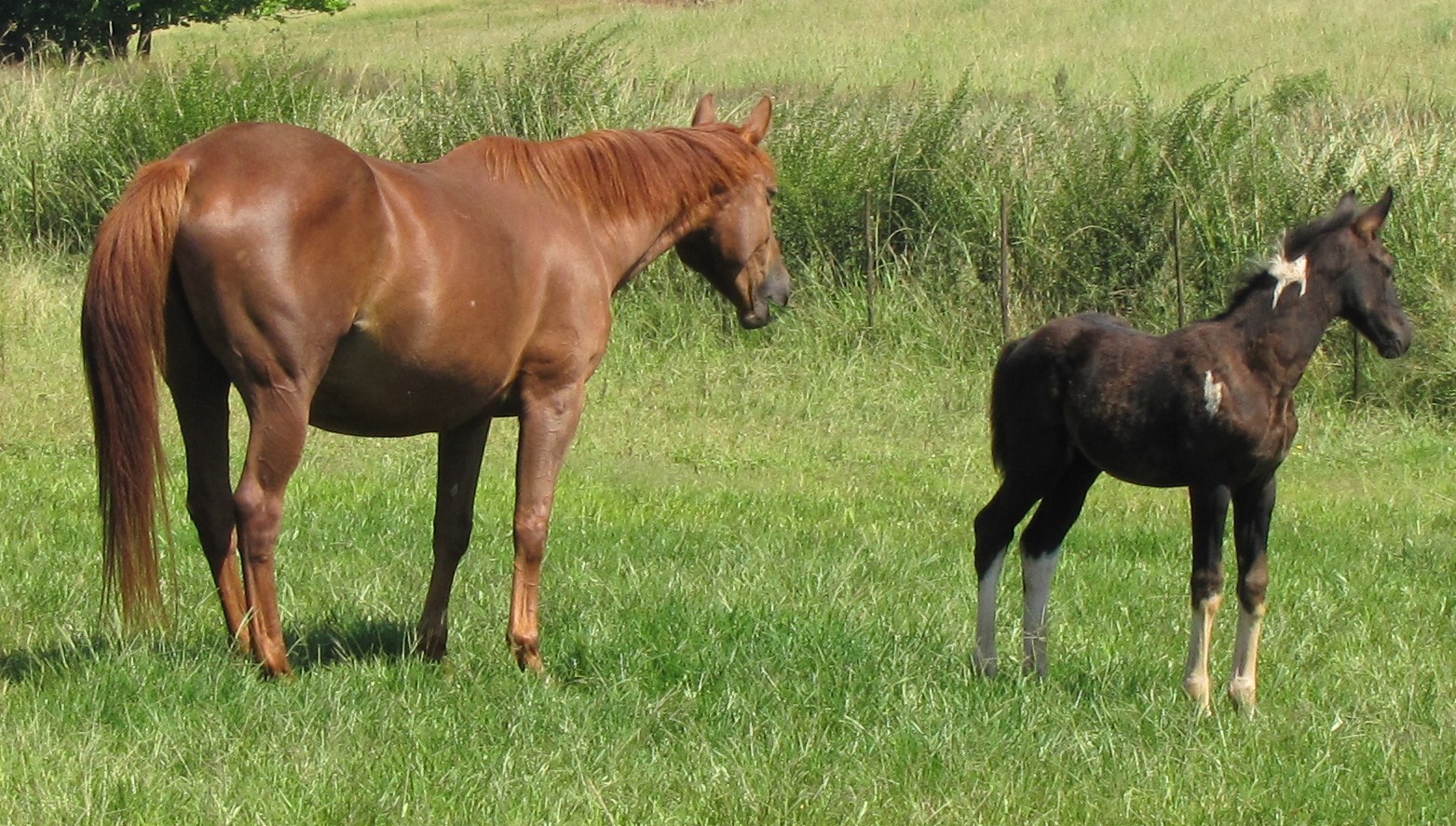
Matching Mare to Stallion
The pairing of a mare with a stallion is a decision that holds the promise of creating something extraordinary. It’s a blend of art and science, where intuition meets knowledge. The goal is to complement the traits of each to produce a foal that embodies the best of both, while also aligning with specific breeding goals.
Guidance on Matching Mare to Stallion
- Complementary Traits: The key to a successful match is finding a stallion whose traits complement those of the mare. If the mare excels in a particular attribute but lacks in another, look for a stallion that can balance these traits. For instance, if the mare has excellent speed but average endurance, a stallion known for endurance can help create a more well-rounded offspring.
- Breeding Goals: Your breeding goals should guide the selection process. Are you aiming to breed a racehorse, a show jumper, or a dressage star? The discipline for which you are breeding will determine the qualities you prioritize in both the mare and the stallion. For instance, a dressage breeding program might prioritize movement and temperament, while a racing program might focus on speed and agility.
- Genetic Diversity: While complementing traits is important, maintaining genetic diversity is also crucial. Avoid choosing a stallion too closely related to the mare to prevent genetic disorders and to promote the health and vitality of the breed.
Discussing Complementary Traits and Breeding Goals
- Physical Attributes: If the mare has certain physical shortcomings, such as a less than ideal conformation, choose a stallion with strong physical attributes to help offset this. Similarly, if the mare is smaller in size and the goal is to breed a larger horse, select a larger stallion, keeping in mind that extreme differences can be problematic.
- Temperament and Behavior: The temperament of both the mare and stallion is vital, especially if you’re breeding horses for disciplines that require calmness and focus, like dressage or show jumping. A stallion with a calm demeanor can be a good match for a more spirited mare, aiming for a balanced temperament in the foal.
- Performance and Pedigree: Consider the performance history and pedigree of both. A mare and stallion that have both achieved success in your chosen discipline are more likely to produce a foal capable of similar achievements. The pedigree can also indicate the potential for health, longevity, and ability.
In conclusion, matching a mare to the right stallion is a nuanced process that requires careful consideration of complementary traits and clear breeding goals. It’s about creating a harmonious balance that brings forth the best possible combination, resulting in a foal that not only meets but potentially exceeds expectations.
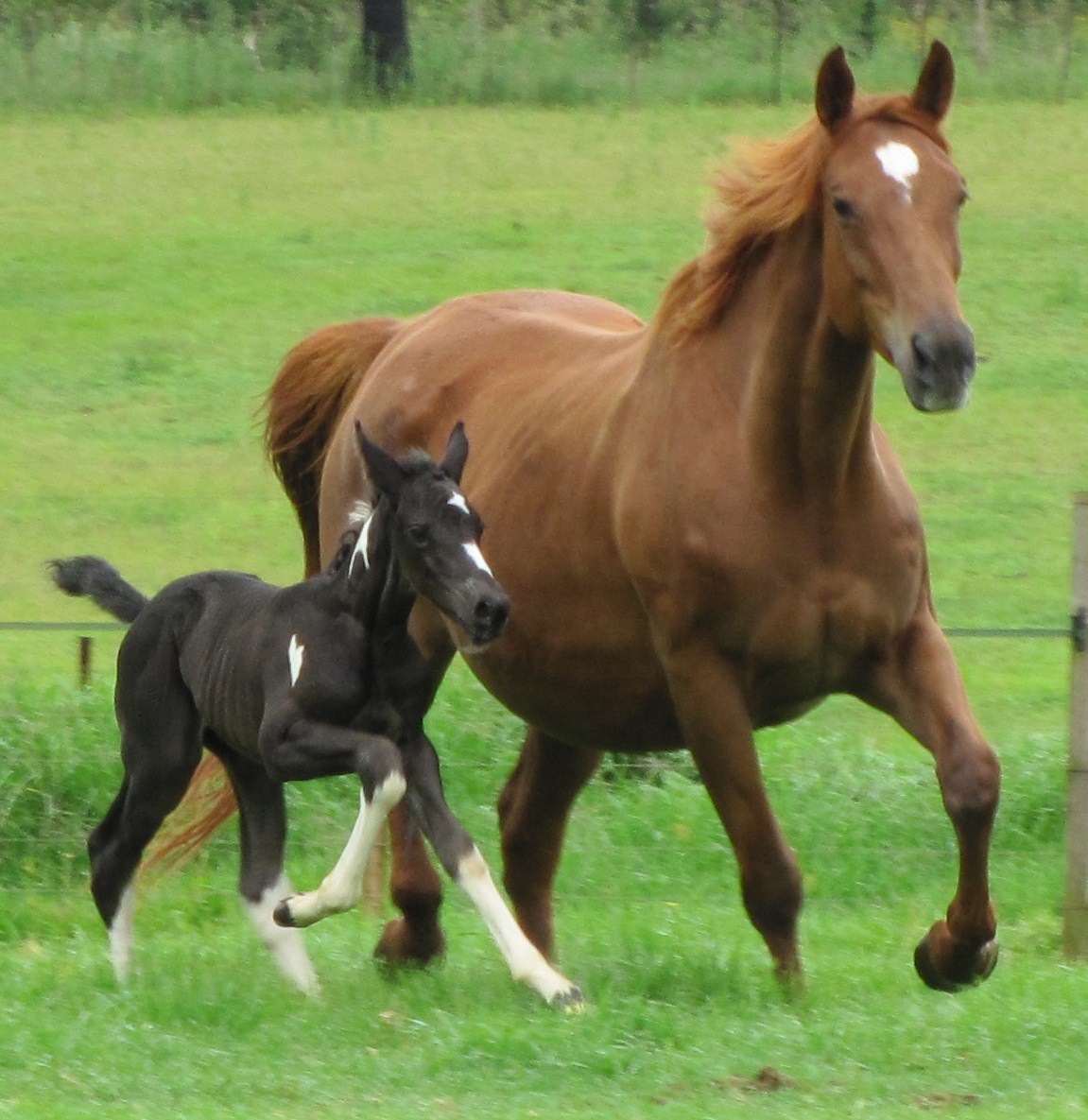
Ethical Considerations in Breeding
Breeding horses is not just a passion or a profession; it is a responsibility that comes with ethical considerations. As breeders, we are entrusted with the welfare of these magnificent creatures, and our decisions can have far-reaching implications for the horses themselves and the equine industry as a whole.
Addressing the Ethical Responsibilities of Breeding
- Welfare of the Horses: The foremost ethical responsibility is to ensure the welfare of the horses involved in breeding. This includes providing optimal care, a healthy environment, and humane treatment throughout their lives. Breeding should never compromise the health or well-being of the mare, stallion, or foal.
- Breeding for Quality, Not Quantity: Ethical breeding practices focus on quality rather than quantity. It’s essential to breed with a purpose and a plan, aiming to improve the breed and produce horses that are sound, healthy, and capable. Overbreeding not only contributes to the surplus of horses but can also lead to a decline in overall quality and health.
- Genetic Responsibility: Ethical breeders consider the genetic implications of their breeding choices. This includes being mindful of hereditary conditions and striving to reduce the risk of passing on genetic disorders. Responsible genetic management is crucial for the long-term health and sustainability of the breed.
Promoting Responsible and Humane Breeding Practices
- Informed Decision Making: Making informed decisions based on thorough research, genetic testing, and expert advice is a cornerstone of ethical breeding. Understanding the lineage, traits, and potential health issues of the mare and stallion can lead to more responsible breeding choices.
- Transparency and Honesty: Ethical breeders are transparent and honest about their breeding practices and the horses they breed. This includes being open about the health, capabilities, and lineage of the breeding horses and the resulting foals.
- Commitment to the Foals: Responsible breeding includes a commitment to the foals produced. This means ensuring they are well-cared for, properly trained, and placed in homes that will continue to provide for their welfare. It also means being prepared to take back or rehome horses if necessary.
In conclusion, ethical considerations in breeding are fundamental to the integrity and future of the equine world. By adhering to responsible and humane breeding practices, we not only uphold our duty to the horses but also contribute to the betterment of the breed and the industry. As breeders, our love and respect for these animals compel us to make choices that are in their best interest and that of future generations.
Conclusion
As we come to the end of our journey through the intricate process of choosing the ideal mare for breeding your dream foal, let us revisit the key points that guide this noble endeavor. Breeding horses is a blend of science, art, and most importantly, a profound commitment to the welfare and betterment of these magnificent creatures.
- Understanding Genetics and Pedigree: Recognize the critical role genetics and pedigree play in breeding. A mare’s genetic makeup and lineage set the foundation for the traits and potential of the offspring.
- Evaluating Physical Attributes: Assess the mare’s conformation, health, and fitness, as these physical attributes significantly influence the foal’s development and potential.
- Assessing Temperament and Behavior: Consider the mare’s temperament and behavior, understanding that her demeanor can profoundly impact the foal’s temperament and learning experiences.
- Matching Mare to Stallion: Choose a stallion whose traits complement the mare’s, aligning with specific breeding goals and promoting the health and vitality of the breed.
- Ethical Considerations in Breeding: Adhere to ethical breeding practices, prioritizing the welfare of the horses, breeding for quality, and being mindful of genetic responsibilities.
Breeding your dream foal is a journey that requires knowledge, careful consideration, and a deep love for horses. It’s about making informed decisions that respect the integrity and future of the equine species. As breeders, our actions today shape the legacy we leave for tomorrow. Let us approach this responsibility with the utmost care, respect, and devotion, ensuring that our love for horses is reflected in every choice we make.
In doing so, we honor not just the horses we breed but also the generations of horse lovers and breeders who have paved the way for us. Let this journey of breeding be one marked by excellence, compassion, and a lasting contribution to the equine world.
Additional resources
- Genetics and Breeding Strategies: The “Horse Genetics 4.0: Evolution, Breeds, Breeding Strategies and Inbreeding” from the Laboratoire de génétique vétérinaire provides a comprehensive overview of genetic principles in horse breeding. It includes detailed information on calculating the Coefficient of Inbreeding and understanding genetic relationships and diversity, which is crucial for making informed breeding decisions. Visit their website at Laboratoire de génétique vétérinaire.
- Practical Horse Breeding Tips: “Equine Breeding For Beginners” by Ron Petracek, featured on horse-genetics.com, offers practical advice for those starting in horse breeding. This resource covers various aspects of breeding, including selecting mates, evaluating conformation and temperament, and ensuring the health of the breeding pair. It’s an excellent guide for beginners and can be found at Equine Breeding for Beginners.
- Genetic Health and Fitness in Horses: Another resource from horse-genetics.com, “Genetic Health and Fitness in Horses,” provides insights into how breeding choices affect the genetic health and fitness of horses. It’s a useful reference for understanding the broader implications of breeding decisions on horse health and breed development.
- Understanding Horse Conformation: An article titled “Horse Conformation” on horse-genetics.com delves into the complexities of horse conformation as a polygenic trait, influenced by multiple genes and environmental factors. It discusses the importance of conformation for both appearance and performance and includes a detailed explanation of what constitutes good conformation.
